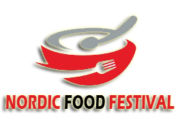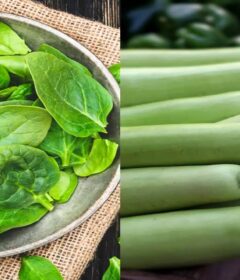How Potatoes Can Improve Athletic Performance And Recovery

Athletes must have a balanced diet that meets their body’s energy requirements, supports muscle growth and recovery, and enhances overall performance. While many different foods and supplements can help achieve these goals, one often overlooked food that is affordable and readily available is the potato. Baked potatoes in the oven are a delicious and nutritious way to fuel your body for athletic performance. This article will explore how potatoes can improve athletic performance and recovery.
The Nutritional Value Of Potatoes
Potatoes are a rich carbohydrate source, essential for energy production during exercise. Carbohydrates are broken down into glucose, fueling the body’s cells. Athletes require a higher intake of carbohydrates than sedentary individuals due to the increased energy demands of exercise. Potatoes are a best source of complex carbohydrates, which provide sustained energy and prevent blood sugar spikes and crashes.
Potatoes are also high in fibre, which can aid in digestion and help regulate blood sugar levels. Fibre can also help athletes feel fuller for longer, preventing overeating and aiding in weight management.
Potatoes contain vitamins and minerals, including C, B6, potassium, and iron. Vitamin C is an antioxidant that can protect cells from damage caused by free radicals generated during exercise. Vitamin B6 is involved in energy metabolism and can help reduce inflammation. Potassium is essential for maintaining fluid balance and can help prevent muscle cramps. Iron is necessary for producing hemoglobin, which transports oxygen to the muscles and can help prevent fatigue.
Potatoes And Athletic Performance
The carbohydrates in potatoes can provide the energy necessary for athletes to perform at their best. Studies have shown that consuming carbohydrates before exercise can enhance endurance performance and delay fatigue. A study found that consuming a high-carbohydrate meal, including potatoes, two hours before exercise significantly increased cycling time to exhaustion compared to a low-carbohydrate meal.
Potatoes can also help athletes recover from exercise. After exercise, the body requires nutrients to repair damaged muscle tissue and replenish glycogen stores. Potatoes can help meet these needs by providing carbohydrates, potassium, and vitamin C. Potassium can aid in rehydration and prevent muscle cramps. In contrast, vitamin C can help reduce inflammation and support immune function.
Potatoes And Muscle Growth
Potatoes contain amino acids, the building blocks of protein. Protein is essential for muscle development and repair, making it crucial for athletes looking to build muscle mass. While potatoes are not a significant source of protein, they can be a useful addition to a protein-rich meal or snack.
Potatoes And Weight Management
Maintaining a healthy weight is crucial for athletes looking to optimize their performance. Potatoes can be an excellent food choice for weight management due to their high fibre content, which can promote satiety and prevent overeating. A study found that consuming potatoes did not result in weight gain and could be a useful food choice for weight management.
Potatoes And Gut Health
The fibre in potatoes can also benefit gut health. Fibre is prebiotic which can help feed the beneficial bacteria in the gut, promoting a healthy gut micro biome. A healthy gut micro biome has been linked to improved immune function, mental health, and reduced inflammation.
Conclusion
In conclusion, potatoes can be an excellent food choice for athletes looking to improve their performance and recovery. Potatoes are a rich source of carbohydrates, fibre, vitamins, and minerals, making them nutrient-dense. The carbohydrates in potatoes can provide the energy necessary for exercise, while the vitamins and minerals can aid in recovery and muscle growth. Potatoes can also be useful for weight management and gut health. However, it’s important to note that not all potato preparations are created equal. Fried potatoes, for example, are high in calories and can lead to weight gain if consumed in excess.




